espionage
Canadian election officials grilled over lack of focus on China, prosecution of Rebel News
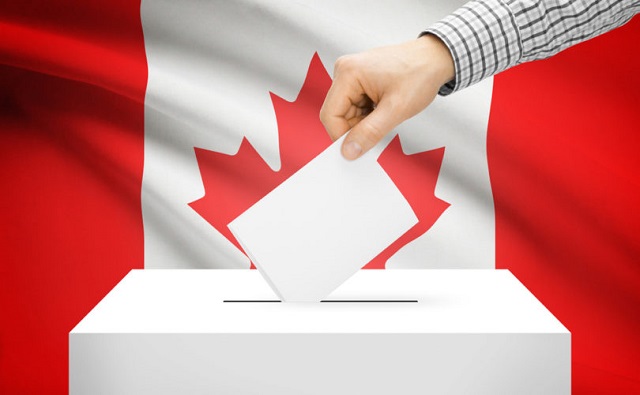
From LifeSiteNews
When it comes to the CCP, many Canadians, especially pro-freedom Chinese Canadians, are concerned considering Trudeau’s past praise for China’s “basic dictatorship” and his labeling of the authoritarian nation as his favorite country other than his own.
Monitors for Canada’s federal elections admitted that despite getting hundreds of complaints claiming that agents of Communist China were interfering in the last two federal elections, it spent vast resources in a four-year chase against Rebel News for planting lawn signs promoting a book critical of Prime Minister Justin Trudeau during the 2019 election.
The admission was made earlier this week by Elections Commissioner Caroline Simard during the public inquiry being held to investigate alleged meddling in Canada’s two most recent federal elections by agents of the Chinese Communist Party (CCP), formally titled the Foreign Interference Commission.
Mylène Gigou, who serves as senior director of enforcement in the Office of the Elections Commissioner, testified that “Canada Elections Act is extremely, extremely complex,” adding that they all “work in a small team where we work very closely with legal counsel.”
Nando de Luca, counsel for the Conservative Party, asked if it would be fair to say, “For investigations of breaches of the Elections Act by domestic actors, the Office has allocated far greater resources and spent far more time in its enforcement activities than it has in respect of alleged breaches of the Act by foreign operators?”
“It is difficult to answer such questions,” replied Simard.
In June 2019, the federal government amended Canada’s Elections Act. The rules require that third parties, including non-profit groups, register with Elections Canada if they spend more than $500 on any kind of “political advertising.” This includes any spending that boosts positions taken during election campaigns regarding issues of public policy. The new Elections Act also sets spending limits on third-party election advertising.
During the fall 2019 Canadian federal election, Rebel News head Ezra Levant Levant was promoting his book, The Libranos: What the media won’t tell you about Justin Trudeau’s corruption, via posters, lawn signs, billboards, and other methods. While the Elections Act permits book promotions, the Commissioner ruled that the lawn signs were not a typical promotion and because Levant was not “registered” as a campaign actor, his action was a violation of the rules.
As a result, Levant was fined $3,000 by the Commissioner, a decision which was upheld by a federal judge last December.
Conservatives question why feds used vast resources to target Rebel News
During the public inquiry this week, de Luca questioned why the Elections Commissioner went after Rebel News so strongly, while at the same time a massive number of complaints concerning CCP interference went un-investigated.
“We are talking about a period of well over four years that the Office of the Commissioner of Elections devoted expenses and resources to this one particular instance of contravention of the Elections Act,” said de Luca.
Now-retired Elections Commissioner Yves Côté, who was the one who green-lit the Rebel News prosecution, said, “I have no specific recollection.”
“The link with foreign interference is not apparent to me for the time being,” said Côté. “What you are saying about this case, I don’t see foreign interference at all in the picture. That said, yes, there was an administrative monetary penalty against Rebel News.”
The Foreign Interference Commission began on January 29 and “will examine and assess the interference by China, Russia and other foreign states or non-state actors, including any potential impacts, in order to confirm the integrity of, and any impacts on, the 43rd and 44th general elections (2019 and 2021 elections) at the national and electoral district levels.”
The inquiry is being headed by Justice Marie-Josée Hogue, who had earlier said that she and her lawyers will remain “impartial” and will not be influenced by politics throughout the process.
In January, Hogue said that she would “uncover the truth whatever it may be.”
“The role of a Commission of Inquiry is to investigate the facts in order to understand what happened in a given situation. Under its mandate, it carries out an objective search of the truth while identifying specific matters, draws conclusions and make recommendations to the government,” she said.
The first set of hearings, or “Stage 1,” are taking place from now until April 10, and will include a host of witnesses including Prime Minister Justin Trudeau.
The “Stage 2” part of the public inquiry will take place this fall and will look at the Trudeau government’s ability to both detect and fight foreign interference targeting Canada’s electoral processes.
The hearings are being held at the Library and Archives Canada building in Ottawa.
When it comes to the CCP, many Canadians, especially pro-freedom Chinese Canadians, are concerned considering Trudeau’s past praise for China’s “basic dictatorship” and his labeling of the authoritarian nation as his favorite country other than his own.
The potential meddling in Canada’s elections by agents of the CCP has many Canadians worried as well.
The public inquiry comes after Trudeau launched a failed investigation into CCP allegations last year after much delay. That inquiry was not done in the public and was headed by “family friend” and former Governor General David Johnston, whom Trudeau appointed as “independent special rapporteur.”
Johnston quit as “special rapporteur” after a public outcry following his conclusion that there should not be a public inquiry into the matter. Conservative MPs demanded Johnston be replaced over his ties to both China and the Trudeau family.
Crime
The US Canadian border: Greatest number of terrorist watch list individuals being apprehended at northern border
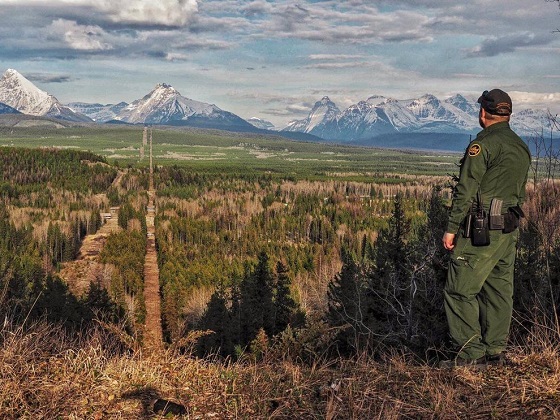
A Border Patrol agent standing watch at the Montana-Canada border in the CBP Spokane Sector. The Spokane Sector covers the U.S.-Canada border along the northwestern section of Montana, part of Idaho, and the eastern part of Washington.
From The Center Square
Lack of operational control at northern border poses national security threats
The northern border largely has been unmanned and understaffed for decades as federal reports issue conflicting conclusions about how much, or how little, operational control exists.
Some officials have suggested the U.S. Department of Homeland Security has just 1% operational control over the northern border after a 2019 General Accounting Office audit of U.S. Customs and Border northern border operations. But a December 2022 DHS report claimed, “The Border Patrol is better staffed today than at any time in its 87-year history,” noting no surveillance of extensive parts of the northern border existed prior to 9/11.
After 9/11, several federal agencies were combined to fall under the newly created Department of Homeland Security. Within 20 years, roughly 950 miles along the U.S.-Canada border from Washington to Minnesota, and roughly 200 miles along the northern border in New York and Lake Ontario, were under unmanned aircraft surveillance. None of these areas “were covered prior to the creation of DHS,” DHS says, meaning the northern border was largely unprotected since Border Patrol’s founding in 1924.
In 2012, DHS released its first unified department strategy for U.S.-Canada border security, prioritizing “deterring and preventing terrorism and smuggling, trafficking, and illegal immigration; safeguarding and encouraging the efficient flow of lawful trade, travel, and immigration; and, ensuring community resiliency before, during, and after terrorist attacks and other disasters.”
Within 10 years at the northern border, more than 2,200 Border Patrol agents were stationed between ports of entry; nearly 3,700 CBP officers were stationed at ports of entry; more than 35 land ports of entry were modernized; and thermal camera systems, mobile and remote video surveillance systems had been deployed.
Havre Sector Border Patrol agent patrolling northern border on an ATV. The Havre Sector covers the U.S.-Canada border along most of Montana’s northern border, and includes part of Idaho and all of Wyoming, Colorado and Utah.
Despite these improvements, “the northern border is under-resourced by far compared to the southwest border,” former Border Patrol chief Mark Morgan told The Center Square. “But at the same time, it still represents significant threats. Cartels are expanding their operations, flying people into Canada, which doesn’t require a visa, presenting an opportunity for terrorist watch-listed individuals to exploit. It’s much easier to get to Canada to come across.”
“Data from 39 months shows terrorist watch-listed individuals are coming here every day and they aren’t stopping,” Morgan added.
For years and prior to the current border crisis, there weren’t enough personnel to cover all shifts, and the infrastructure, technology and equipment afforded to them didn’t compare to those at the southwest border, he said. People can easily drive snow mobiles over frozen territory or boats across the Great Lakes in areas that are unmanned, Morgan said, with a previous policy of self-reporting to authorities.
“The northern border represents a threat,” Morgan said. Noting it only took 19 men to carry out the 9/11 terrorist attacks, Morgan has warned that a terrorist threat is already in the U.S. No one knows how many terrorist watch-listed individuals have illegally entered who weren’t caught, multiple officials have told The Center Square.
While much attention has focused on the southwest border, the greatest number of known or suspected terrorists to ever be apprehended in U.S. history were at the northern border in fiscal 2023, breaking fiscal 2022’s record, The Center Square first reported.
This fiscal year through April, the greatest number of KSTs (known or suspected terrorists) continue to be apprehended at the northern border, 143 so far, according to CBP data.
Potential terrorist threats are not new and have persisted for some time, federal reports indicate. One Border Patrol intelligence report says terrorist threats potentially come from “foreign violent extremists to exploit established alien smuggling routes and networks for the purpose of evading detection en route to the United States.”
Other threats include drug smuggling from Canada into the U.S., connected to “criminal groups with known ties to or hired by Mexican drug trafficking organizations” and human smuggling. In the last few years, human smuggling attempts and apprehensions have significantly increased, The Center Square has reported.
The Center Square first began reporting on northern border national security threats several years ago. Since then, apprehensions of illegal border crossers in the first six months of fiscal 2024 were the highest on record. In the busiest sector of Swanton, Border Patrol agents recently apprehended more people in one week than they did in all of fiscal 2021.
Last month, they apprehended more than 1,400 illegal border crossers, more than they did in fiscal years 2021 and 2022 combined, Swanton Sector Chief Border Patrol Agent Robert Garcia just announced, saying it was “another record-breaking milestone in northern border history.”
This is after they apprehended more than 6,700 in fiscal 2023, more than the apprehensions of the previous 11 years combined, The Center Square first reported.
The U.S.-Canada border is the longest international border in the world of 5,525 miles. Unlike the U.S.-Mexico border, there are no border walls or similar barriers along the U.S.-Canada border. Through DHS, CBP officers are tasked with border security at ports of entry and Border Patrol agents between ports of entry along 4,000 miles. The U.S. Coast Guard, working with CBP’s Air and Maritime Operations, covers maritime security.
espionage
EXCLUSIVE: House Committee To Investigate Spike In Chinese Illegal Immigration Following DCNF Report
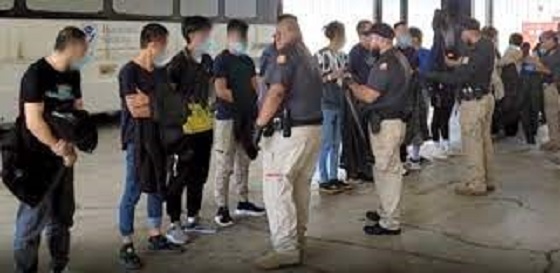
 From the Daily Caller News Foundation
From the Daily Caller News Foundation
Dan Bishop, chair of the subcommittee on Oversight, Investigations, and Accountability, told the DCNF that a “wide-open border presents a ripe opportunity for the [Chinese Communist Party] to undermine our national security.”
A House committee is scheduled to examine the historic surge in Chinese illegal immigration next week, the Daily Caller News Foundation has learned.
The House Homeland Security Committee’s Subcommittee on Oversight, Investigations, and Accountability will hold a hearing on Thursday concerning the roughly 8,000% increase in Chinese illegal immigration the U.S. has experienced since March 2021, a committee spokesperson told the DCNF. The DCNF recently revealed an internal U.S. Customs and Border Protection (CBP) email showing that the Biden administration dramatically simplified the vetting process for Chinese illegal immigrants in April 2023, which has increased the speed of Chinese illegal immigrants entering the country.
The CBP email directed Border Patrol agents to reduce the 40 questions they were required to ask Chinese illegal immigrants down to just five “basic questions” concerning their “Military Service,” “Universities,” “POB/Region,” “Employment” and “Political Party.”
North Carolina Republican Rep. Dan Bishop, chair of the subcommittee on Oversight, Investigations, and Accountability, told the DCNF that a “wide-open border presents a ripe opportunity for the [Chinese Communist Party] to undermine our national security.”
“This dramatic surge calls for intense scrutiny — especially as Border Patrol agents have been instructed to decrease vetting for Chinese nationals in order to process them into the country faster,” Bishop said. “As the CCP continues its quest for geopolitical dominance and threatens our sovereignty, we must examine the risks presented by releasing ever-increasing numbers of minimally-vetted Chinese nationals into our communities.”
READ the leaked @CBP email obtained by the @DailyCaller showing that the Biden Admin radically simplified the vetting process for Chinese illegal immigrants@DailyCaller pic.twitter.com/06sZK3Kiuz
— Philip Lenczycki 蔡岳 (@LenczyckiPhilip) January 2, 2024
U.S. authorities have encountered 24,376 Chinese nationals at the southwest border in fiscal year 2024 alone, according to the committee. In February 2024, the Republican National Committee adopted a resolution condemning the Biden administration’s immigration policies, citing the national security threat posed by “Chinese military-aged men” entering the country illegally, the DCNF reported.
Ammon Blair, a former Border Patrol agent and Army veteran, told the DCNF that “being a Border Patrol agent during the surge in Chinese illegal aliens felt like confronting a scene from ‘Red Dawn.’”
“Gradually, it appeared that our role was being coerced by current administration policies, from honorably defending our borders to paradoxically laying down a ‘Silk Road’ for our adversaries,” said Blair, who now works as senior fellow for the Texas Public Policy Foundation. “This evolution in policy seems complicit in the CCP invasion and their embedded threats like cyber warfare, drug warfare with Mexican cartel proxies, and economic destabilization.”
The simplification of the vetting process for Chinese illegal immigrants and other Biden administration policies have “created pitch-perfect conditions” for “the infiltration of Chinese agents of espionage,” Todd Bensman, a senior national security fellow at the Center For Immigration Studies, told the DCNF.
“Intelligence community assessments show that China intends to ramp up espionage and political suppression campaigns in the coming years inside the U.S. and will need an expanded labor force for the effort,” said Bensman, who is one of three experts scheduled to testify during Thursday’s hearing.
THREAD@BryanDeanWright kindly had me on his podcast to discuss recent @DailyCaller investigations re: CCP influence operations
PART 1/3 covered:
– leaked @CBP email re: how @POTUS simplified vetting process for 🇨🇳 illegals
🙏PLEASE WATCH & SHARE – THANK YOU!🙏 pic.twitter.com/HreHdynFSD
— Philip Lenczycki 蔡岳 (@LenczyckiPhilip) March 8, 2024
Bensman’s testimony will feature photos of identification cards and passports discarded by Chinese illegal immigrants just after crossing the U.S. southern border, a committee source told the DCNF.
Cory Gautereaux, a small business owner and veteran living near the San Diego border, collected those discarded materials and shared them with Bensman.
Gautereaux told the DCNF that he believes Chinese illegal immigration is a “serious national security threat.”
“If they are discarding their IDs and hiding their identity there is a reason,” Gautereaux said. “Since our elected leaders are reluctant to visit the border, I’ll be glad to physically deliver these items to Washington and testify to what I’ve seen.”
-

 Automotive1 day ago
Automotive1 day agoGovernments in Canada accelerate EV ‘investments’ as automakers reverse course
-
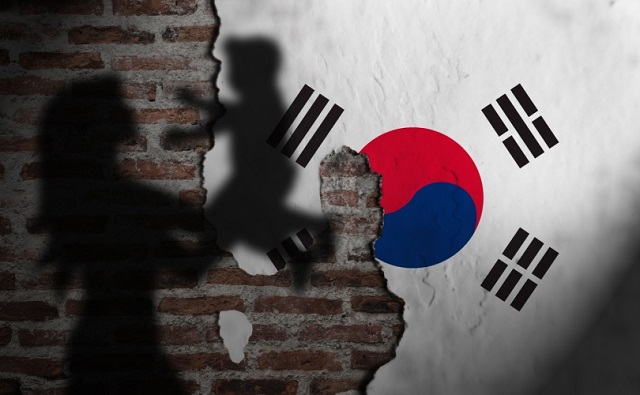
 Health1 day ago
Health1 day agoSouth Korean president declares low birth rate a ‘national emergency,’ plans new ministry to address it
-

 COVID-192 days ago
COVID-192 days agoJapan’s most senior cancer doctor: COVID shots are ‘essentially murder’
-
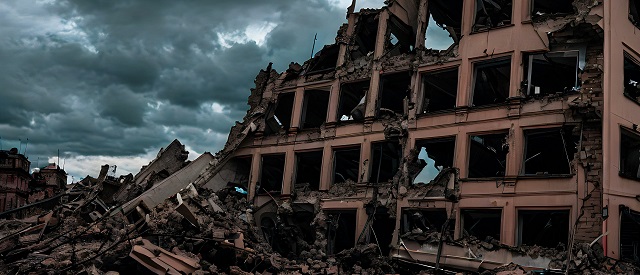
 conflict20 hours ago
conflict20 hours agoWhite House Reportedly Worried About Russia’s Sudden Momentum Months After Biden Declared Putin ‘Already Lost’ War
-
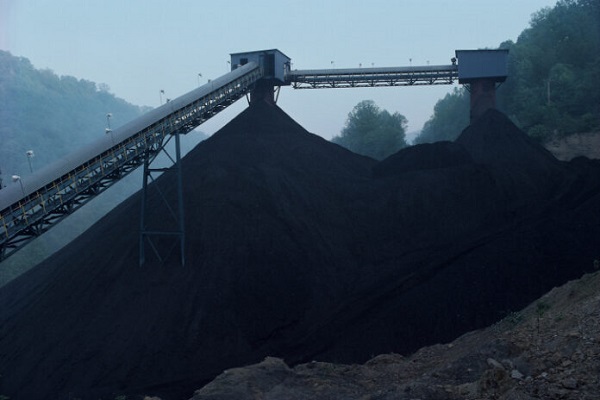
 Economy2 days ago
Economy2 days agoBiden signs suicidal ‘No Coal’ pact, while rest of world builds 1,000 new plants
-

 Crime21 hours ago
Crime21 hours agoSlovakian prime minister who opposed WHO Pandemic Treaty shot in assassination attempt
-

 Alberta1 day ago
Alberta1 day agoFortis et Liber: Alberta’s Future in the Canadian Federation
-
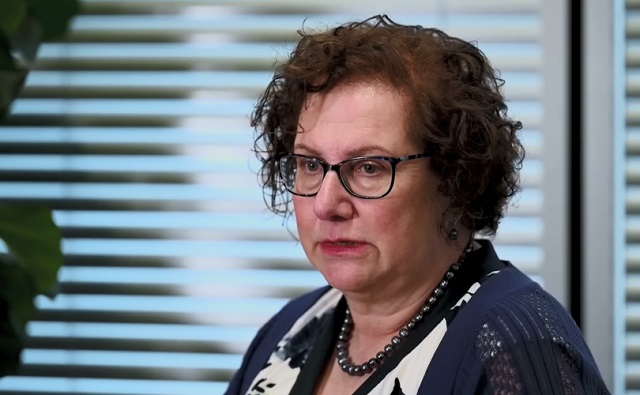
 Health1 day ago
Health1 day agoUK pediatrician who led review of child ‘transitions’ says US medical groups ‘misleading the public’









